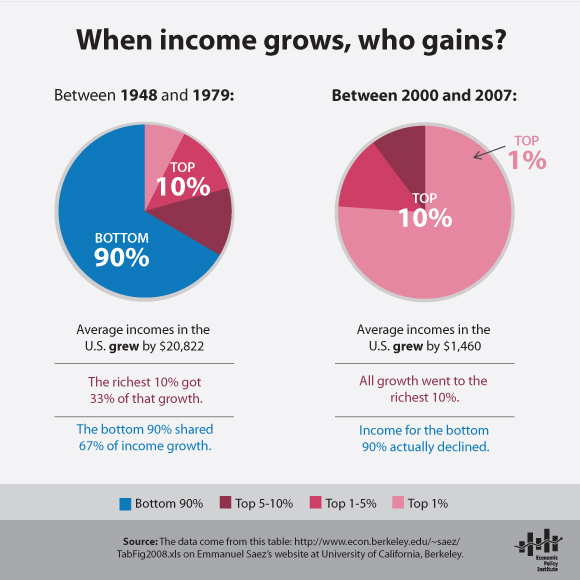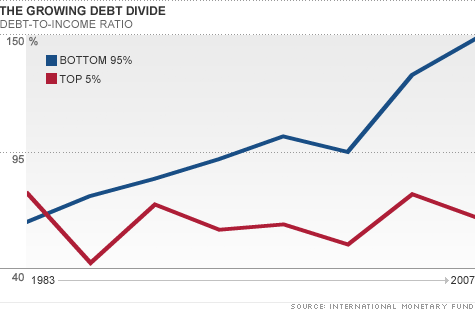When it comes to those who are manipulating and controlling the
ill-informed to get or keep wealth, I think compassion has to move over
for activism. For this cause, there is no time left to try to persuade
those who are unaware that the misery they're enduring now is a result
of unbridled greed by the rich. It's time to get focus on this issue any
way we can, because it's only getting worse.
So what? Well, you might want to give a listen to this TED talk by Dr. Richard Wilkinson ("How Economic Inequality Harms Societies"), in which he explains that a whole lot of other social ills increase as income inequality rises. According to his data, the U.S. is now the worst county in the world when it comes to life expectancy, obesity, mental illness, literacy, infant mortality, drug and alcohol addiction, and even levels of trust among us, and that dive to the bottom correlates remarkably with our increase in income inequality in the past decade. The Economic Policy Institute recently noted in a feature on inequality that "...those at the bottom of the income distribution are not only less likely
to get ahead financially, but they have also been left behind when it
comes to recent gains to overall life expectancy." Somethin', huh?There's more and more press and publications on the issue such as the examples below, so while I'm out holding up an Occupy sign, check these out and see if your activism button gets pressed, too.



Data taken from an interactive chart on the State of Working America web site.

@CNNMoney, May 2, 2012

Benjamin M. Friedman, May 25, 2012
 "....In 'The Great Divergence,' the journalist Timothy Noah gives us as fair
and comprehensive a summary as we are likely to get of what economists
have learned about our growing inequality. Noah is concerned about why
inezquality has widened so markedly over the last three to four decades,
what it means for American society and what the country can — and, he
argues, urgently should — do about it. As he makes clear, what has
mostly grown is the gap between those at the top and those in the
middle. As a result, his book resonates more with the recent focus on 'the 1 percent' than with more traditional concerns about poverty."
"....In 'The Great Divergence,' the journalist Timothy Noah gives us as fair
and comprehensive a summary as we are likely to get of what economists
have learned about our growing inequality. Noah is concerned about why
inezquality has widened so markedly over the last three to four decades,
what it means for American society and what the country can — and, he
argues, urgently should — do about it. As he makes clear, what has
mostly grown is the gap between those at the top and those in the
middle. As a result, his book resonates more with the recent focus on 'the 1 percent' than with more traditional concerns about poverty."

Jimmy Zuma, May 24, 2012
"...Today crossing from poor to rich is virtually impossible. In recent years the very rich have doubled their share of the nation’s income but the number of rich people hasn’t increased markedly. The United States lags behind all leading European Union countries in the possibility of moving up."
No comments:
Post a Comment